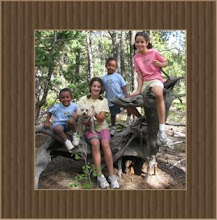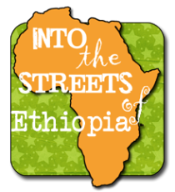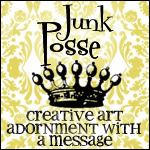https://docs.google.com/file/d/0B-obhHD6VxLWYjNwZkt3czByV0U/edit
This is the link to the word cards that we used in ET to communicate with our sons. They have a picture on them and the English words. I suggest laminating them and then when you get there ask for the phrase or word in your child's native language. It gives you a way to communicate. I put these on a lanyard and wore them to use when communicating important things like: use the bathroom, go to sleep, are you hungry, what do you want, give a hug, etc.
This was really helpful and I would suggest some sort of communication tool for those adopting children over 18 months. This worked with 3 year olds.
Our most important words:
https://docs.google.com/file/d/0B-obhHD6VxLWOFlJMHlPMWNqVnM/edit
Words and phrases:
https://docs.google.com/file/d/0B-obhHD6VxLWcnZmMnNGNHBJbDA/edit
Showing posts with label communication. Show all posts
Showing posts with label communication. Show all posts
Wednesday, January 16, 2013
Sunday, September 25, 2011
Helping your child transition to English
Well, I have wanted to do a post on language for a while. I have finally gotten around to it.
When our boys came home they were 3. At three a child knows a lot of language and ours were HIGHLY verbal, and one quite verbose. K used complex language of a child much older (age was correct) and N used a sort of "country bumpkin" sort of speech, very cute to those who could understand it (at the guest house and drivers, etc.). They would both look to us and chatter on about whatever or ask for what they needed, in Amharic. We learned fast some key phrases to say and hear.
*Here are some of the things we did to communicate while in transition (in ET and for about 2 weeks home):
Here are some online resources, check out Preschool, Early Child Development, creative play, readiness skills, language arts, language:
http://www.lakeshorelearning.com/seo/f|/Assortments/Lakeshore/ShopByCategory/language/viewall.jsp
http://www.eschoolcrossing.com/
http://www.teachingsupplystore.com/early_childhood-c-1011125.html
http://www.cmschoolsupply.com/
Remember it is NOT how much your child knows but how much your child knows you love him or her. In our culture it is easy to get caught up in how much your kid knows but it all comes......... no need to push. Love on him or her and they will have the confidence to learn. These suggestions are for FUN. It is important to keep perspective.
When our boys came home they were 3. At three a child knows a lot of language and ours were HIGHLY verbal, and one quite verbose. K used complex language of a child much older (age was correct) and N used a sort of "country bumpkin" sort of speech, very cute to those who could understand it (at the guest house and drivers, etc.). They would both look to us and chatter on about whatever or ask for what they needed, in Amharic. We learned fast some key phrases to say and hear.
*Here are some of the things we did to communicate while in transition (in ET and for about 2 weeks home):
- picture cards/with Amharic phrases and words written on them so we could show them the picture say the Amharic and English word.
- We also used a phrase and word list see this post: http://jkdcolorado.blogspot.com/2009/04/amharic-word-list-for-communication.html
- We played a lot of memory games to use words items they were likely familiar with and learn the new word.
- We read those baby books that have one picture on a page with a word. Trucks, Animals, Toys, Food, Etc.... I would say books with only one picture on a page are the very best, not confusing. There was lots of snuggle time with that too, and so it was fun for all of us.
- Using deliberate speech. Please give mommy the blue cup on the table. Please put your white socks in the dirty laundry basket. Go get your red dog from your room. The more descriptive and intentional the language the better the learning.
- loads of play time and reading time.
- Talking about everything with descriptive language. I got tired of talking.
- Leap Frog videos, games and toys (keep to the Preschool variety at first)
- Picture flash cards for numbers and letters (play games with these)
- picture dominoes (basic items like fruits or colors)
- number dot dominoes
- singing kids songs, especially ones with actions
- finger games and hand play rhymes and songs
- seek and find
- 20 questions, I'm thinking of a ____________ (give category)
- First Word cards (these have pictures and are great not just for reading but for what is this thing called).
- matching games and sorting games
- Language Wizard series
- Cool Cards (picture cards for learning items)
- brain games
- facial expressions cards to learn feeling words (this is a useful thing to work on, whatever method you use to teach it).
Here are some online resources, check out Preschool, Early Child Development, creative play, readiness skills, language arts, language:
http://www.lakeshorelearning.com/seo/f|/Assortments/Lakeshore/ShopByCategory/language/viewall.jsp
http://www.eschoolcrossing.com/
http://www.teachingsupplystore.com/early_childhood-c-1011125.html
http://www.cmschoolsupply.com/
Remember it is NOT how much your child knows but how much your child knows you love him or her. In our culture it is easy to get caught up in how much your kid knows but it all comes......... no need to push. Love on him or her and they will have the confidence to learn. These suggestions are for FUN. It is important to keep perspective.
Labels:
Becoming Family,
communication,
ELL/ESL,
local resource,
products
Friday, September 10, 2010
Flash cards and communication
Communicating with your non English speaking child can be frustrating. We used a list of handy phrases in Amharic. See list here.
We also used home made picture cards to show the action or need. We included: drink, eat, potty, sleep, dress, play, sick, happy, sad, hug, etc..... we did not use them as much as we used the Amharic phrases. First we used them together, but as we learned the phrases better we did not need the cards. We wrote the Amharic phrase on the cards so that we could say it. Some families have found the cards to be really helpful. You can make them yourself with clip art or you can buy some or download them on this site.
http://www.eslflashcards.com/
I would mention that so called universal signs and signals still need to be learned and so some cards will not be self apparent. Some will, a picture of a child drinking is self apparent. But, a picture of a toilet may not be right away. Huh???? Well, most places the toilet is a pit in the ground. :) Does not look like our toilet. So, some orientation will be needed but happens quickly. Do try to add the Amharic or Sidamic phrases so your child understands.
We also used home made picture cards to show the action or need. We included: drink, eat, potty, sleep, dress, play, sick, happy, sad, hug, etc..... we did not use them as much as we used the Amharic phrases. First we used them together, but as we learned the phrases better we did not need the cards. We wrote the Amharic phrase on the cards so that we could say it. Some families have found the cards to be really helpful. You can make them yourself with clip art or you can buy some or download them on this site.
http://www.eslflashcards.com/
I would mention that so called universal signs and signals still need to be learned and so some cards will not be self apparent. Some will, a picture of a child drinking is self apparent. But, a picture of a toilet may not be right away. Huh???? Well, most places the toilet is a pit in the ground. :) Does not look like our toilet. So, some orientation will be needed but happens quickly. Do try to add the Amharic or Sidamic phrases so your child understands.
Labels:
communication,
products,
travel
Saturday, April 4, 2009
Amharic word list for communication with your recently adopted child
Our most important Amharic words for communicating with our preschool age boys.
I love you-- ee-wha-de-halow (girl end in shal oh)
It’s ok honey -- Ishee eye-zoe
Don’t be afraid-- ah teh frah
These together are great for scary or sad times or bad dreams, etc…..
*Add “yay” to the end of the name for a term of endearment. Kedusyay, Natiyay, etc…. it is like saying Jilly or Sammy. They also use the "y" at the end like we do. It is an "i" as in Nati.
Ok-- ishee
It is time to go to sleep-- la ten ya
Go to sleep (command)-- ten ya
Night night-- mah Tah mah tah
No, don’t do that-- tdoe
Stop-- koom (girl koom ee)
Yes-- ow
Good child-- goe bez
Enough!-- Bakka
Wait-- Koi (girl koy ee)
Good job!-- Tih ROO sih RAH
That was bad, that is bad, it was a bad thing….-- Meht FOH
Good-- tih roo
Are you ok? -- Teh shah lekh (girl end in lesh)
Look -- ay (ay ee)
Sit down -- koach ah bel (sounds like “coach a bell”)
Come -- nah
Hello -- halo or seh lahm
Good bye -- chow
I’m sorry -- yih kir tah
Mommy-- amay (careful to use this word for birthmother and not myself) Lots of kids say Mommy also.
Daddy-- ahb-baba
Small-- tinish
Big -- tih lihk
Dog -- woosha
Cat -- dumet
Bird -- wuhf
Car-- mah kee nah
Ball -- kwas
Shoes -- chamahs
Clothes-- libs
Blanket -- bird libs
New -- addis (new clothes, mommy, etc…)
The word for potty --shent (also means to pee)
Poop -- kah kah
Brush teeth -- broosh
Juice-- chee mah key
Milk -- wha tet
Water -- whu ha
Delicious (it is good)-- yee tahf tahl
Do you want …?-- tih fuh lih GAHL ekh (boy) tih fuh lih GAHL esh (girl)
Bottle (even for water)-- TOO toh
A bad guy is (we did not use this one, but they DID)-- lay-bah
I love you-- ee-wha-de-halow (girl end in shal oh)
It’s ok honey -- Ishee eye-zoe
Don’t be afraid-- ah teh frah
These together are great for scary or sad times or bad dreams, etc…..
*Add “yay” to the end of the name for a term of endearment. Kedusyay, Natiyay, etc…. it is like saying Jilly or Sammy. They also use the "y" at the end like we do. It is an "i" as in Nati.
Ok-- ishee
It is time to go to sleep-- la ten ya
Go to sleep (command)-- ten ya
Night night-- mah Tah mah tah
No, don’t do that-- tdoe
Stop-- koom (girl koom ee)
Yes-- ow
Good child-- goe bez
Enough!-- Bakka
Wait-- Koi (girl koy ee)
Good job!-- Tih ROO sih RAH
That was bad, that is bad, it was a bad thing….-- Meht FOH
Good-- tih roo
Are you ok? -- Teh shah lekh (girl end in lesh)
Look -- ay (ay ee)
Sit down -- koach ah bel (sounds like “coach a bell”)
Come -- nah
Hello -- halo or seh lahm
Good bye -- chow
I’m sorry -- yih kir tah
Mommy-- amay (careful to use this word for birthmother and not myself) Lots of kids say Mommy also.
Daddy-- ahb-baba
Small-- tinish
Big -- tih lihk
Dog -- woosha
Cat -- dumet
Bird -- wuhf
Car-- mah kee nah
Ball -- kwas
Shoes -- chamahs
Clothes-- libs
Blanket -- bird libs
New -- addis (new clothes, mommy, etc…)
The word for potty --shent (also means to pee)
Poop -- kah kah
Brush teeth -- broosh
Juice-- chee mah key
Milk -- wha tet
Water -- whu ha
Delicious (it is good)-- yee tahf tahl
Do you want …?-- tih fuh lih GAHL ekh (boy) tih fuh lih GAHL esh (girl)
Bottle (even for water)-- TOO toh
A bad guy is (we did not use this one, but they DID)-- lay-bah
Labels:
communication,
travel,
While You Wait
Subscribe to:
Posts (Atom)
Guest house gives back
Sponsor a Child
Disclaimer
The content on The Wayfarer:Ethiopian Adoption Resource Blog is for informational purposes only. We are adoptive parents, but we are not professionals. The opinions and suggestions expressed here are not intended to replace professional evaluation or therapy, or to supersede your agency. We assume no responsibility in the decisions that families make for their children and families. There are many links on this blog. We believe these other sites have valuable information, but we do not necessarily share all of the opinions or positions represented by each site, nor have we fully researched every aspect of each link. Please keep this in mind when visiting the links from this page.
Thank You.
Thank You.
A Links Disclaimer
I post a lot of links. I do so because I feel that the particular page has good information and much to offer. I do not necessarily support all that each site has to say or promote. I trust you to sift the links for information you feel is worthwhile to you. Each person's story and situation are unique and different things will be useful or not useful to each one in different ways. Please use your own discretion when accessing links and information.










































